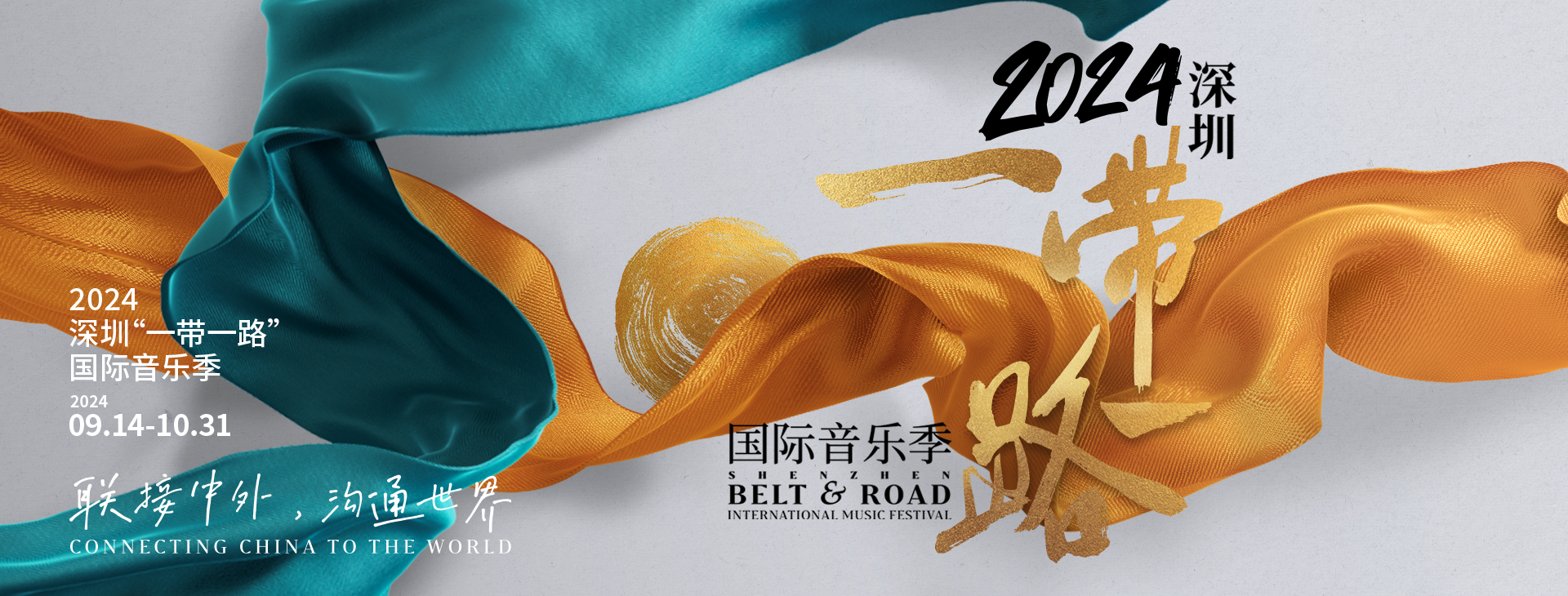

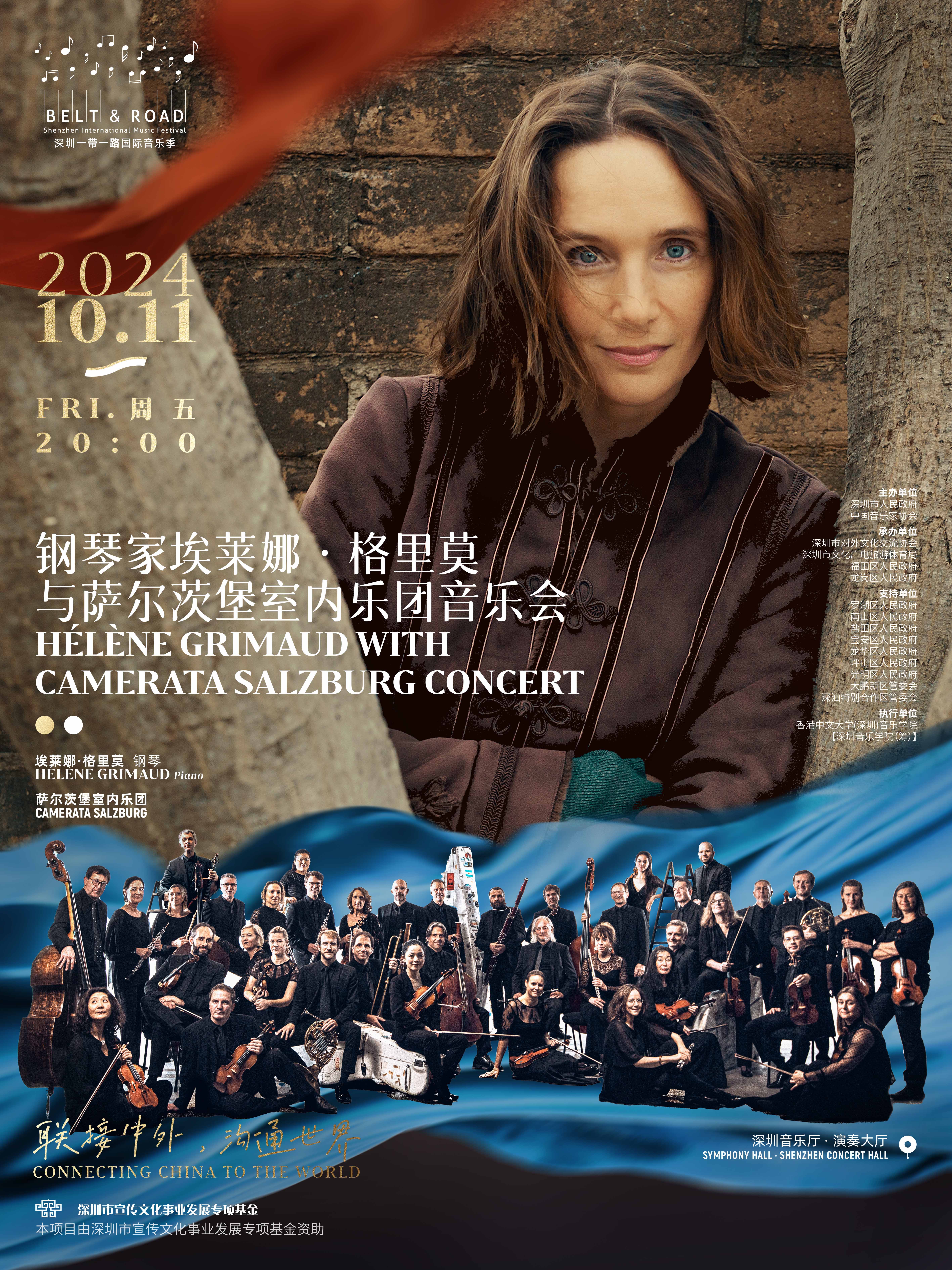
2024深圳“一带一路”国际音乐季
2024 Shenzhen "Belt & Road" International Music Festival
钢琴家埃莱娜·格里莫与萨尔茨堡室内乐团音乐会
Hélène Grimaud with Camerata Salzburg Concert
演出时间 Date&Time
10月11日(周五)20:00
Oct. 11 (Fri.) 8 PM
演出地点 Venue
深圳音乐厅·演奏大厅
Symphony Hall, Shenzhen Concert Hall
演出曲目 Programme
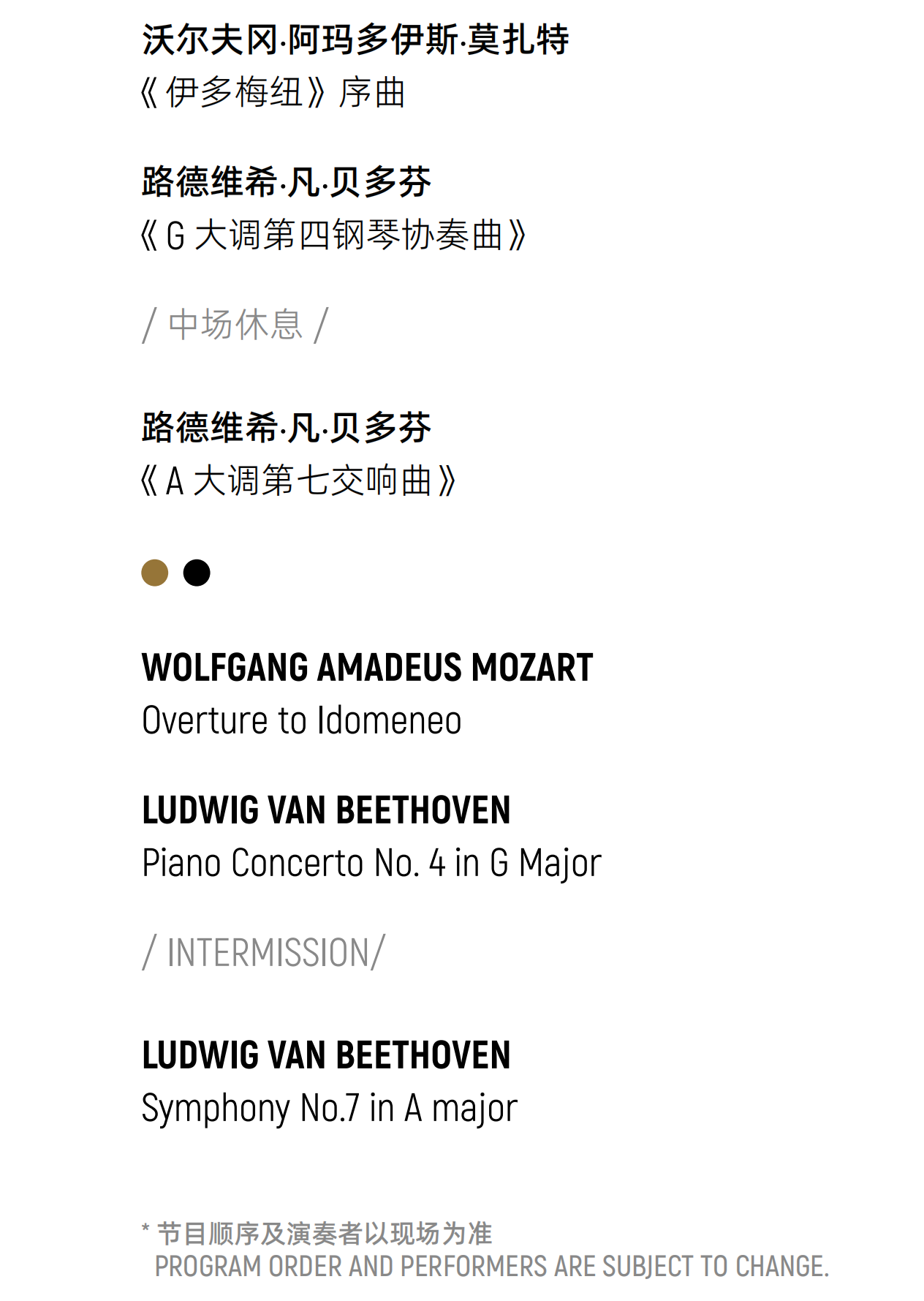
主创团队 Creative Team
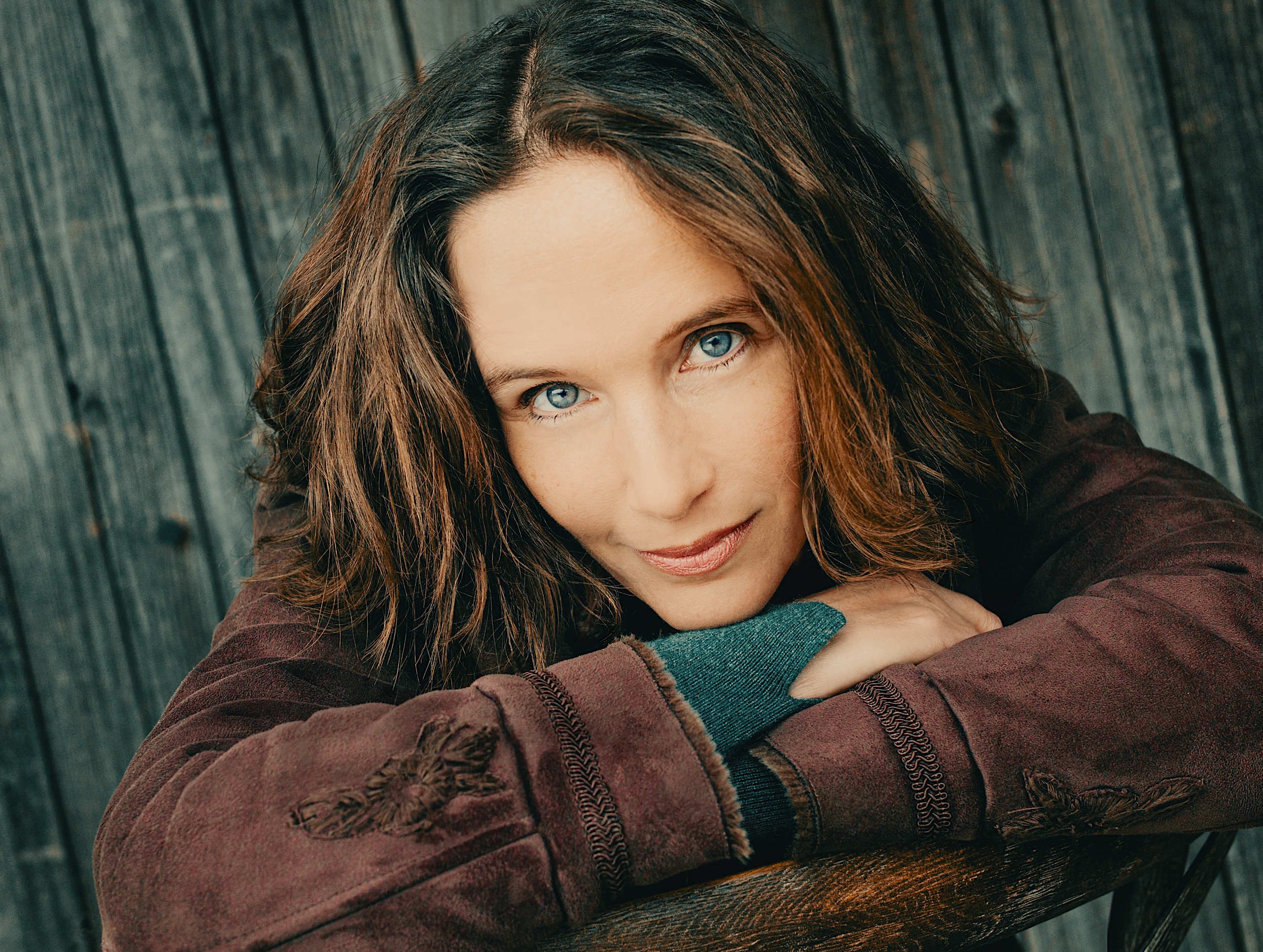
埃莱娜·格里莫/钢琴
Hélène Grimaud/Piano
Hélène Grimaud has established herself not only as a virtuoso pianist, but also as a committed wildlife conservationist, a compassionate human rights activist and as a writer.
Her piano journey commenced at the local conservatory under the tutelage of Jacqueline Courtin, followed by further instruction from Pierre Barbizet in Marseille. Remarkably, at the age of 13, she gained admission into the prestigious Paris Conservatoire and secured the first prize in piano performance a mere three years later. Her education continued under the guidance of György Sándor and Leon Fleisher, culminating in a highly acclaimed debut recital in Tokyo in 1987.
During the same year, the esteemed conductor Daniel Barenboim extended an invitation to her to perform with the Orchestre de Paris, which marked the beginning of Grimaud’s illustrious musical career. Since then, she has graced the stages of renowned orchestras worldwide and collaborated with numerous celebrated conductors, establishing herself as a prominent figure in the world of classical music.
Renaissance woman Hélène Grimaud is not just a deeply passionate and committed musical artist whose pianistic accomplishments play a central role in her life. Her multiple talents extend far beyond the instrument she plays with such poetic expression and technical control: Grimaud has established herself as a wildlife conservationist, a human rights activist and a writer, her deep dedication to her musical career reflected in and amplified by the scope and depth of her environmental, literary and artistic interests.
She has been an exclusive Deutsche Grammophon artist since 2002. Her recordings have been critically acclaimed and awarded numerous accolades, among them the Cannes Classical Recording of the Year, Choc du Monde de la musique, Diapason d’or, Grand Prix du disque, Record Academy Prize (Tokyo), Midem Classic Award and the Echo Klassik Award.
Grimaud’s early recordings include Credo and Reflection (both of which feature a number of thematically linked works); a Chopin and Rachmaninov Sonatas disc; a Bartók CD on which she plays the Third Piano Concerto with the London Symphony Orchestra and Pierre Boulez; a Beethoven disc with the Staatskapelle Dresden and Vladimir Jurowski which was chosen as one of history’s greatest classical music albums in the iTunes “Classical Essentials” series; a selection of Bach’s solo and concerto works, in which she directed the Deutsche Kammerphilharmonie Bremen from the piano; and a DVD release of Rachmaninov’s Second Piano Concerto with the Lucerne Festival Orchestra and Claudio Abbado.
In 2010 Grimaud recorded the solo recital album Resonances, showcasing music by Mozart, Berg, Liszt and Bartók. This was followed in 2011 by a disc featuring her readings of Mozart’s Piano Concertos Nos. 19 and 23 as well as a collaboration with singer Mojca Erdmann in the same composer’s Ch’io mi scordi di te?. Her next release, Duo, recorded with cellist Sol Gabetta, won the 2013 Echo Klassik Award for “chamber recording of the year”, and her album of the two Brahms piano concertos, the First recorded with Andris Nelsons and the Bavarian Radio Symphony Orchestra, the Second with Nelsons and the Vienna Philharmonic, appeared in 2013. This was followed by Water (2016), a live recording of performances from tears become… streams become…, the critically-acclaimed large-scale immersive installation at New York’s Park Avenue Armory created by Turner Prize-winning artist Douglas Gordon in collaboration with Grimaud. Water features works by nine composers: Berio, Takemitsu, Fauré, Ravel, Albéniz, Liszt, Janáček, Debussy and Nitin Sawhney. 2017 then saw the release of Perspectives, a two-disc personal selection of highlights from her DG catalogue, including two “encores” – Brahms’s Waltz in A flat and Sgambati’s arrangement of Gluck’s “Dance of the Blessed Spirits” – previously unreleased on CD/via streaming.
Grimaud’s next album, Memory, was released in 2018. Exploring music’s ability to bring the past back to life, it comprises a selection of evanescent miniatures by Chopin, Debussy, Satie and Ukrainian composer Valentin Silvestrov. The pianist then chose to follow this by creating an intriguing dialogue between Silvestrov and Mozart on The Messenger, released in 2020. Together with the Camerata Salzburg, she recorded Mozart’s Piano Concerto K466 and Silvestrov’s Two Dialogues with Postscript and The Messenger – 1996, of which she also created a solo version. Mozart’s Fantasias K397 and K475 complete the programme.
After this, Grimaud moved on to Silvestrov’s vocal music. Silent Songs features her live performance with baritone Konstantin Krimmel of a selection of pieces from the composer’s monumental song cycle of the same name. It was released in March 2023 to critical acclaim: “Konstantin Krimmel and Hélène Grimaud deserve the highest praise for their poised and unaffected account of this beautiful, dreamlike music” (BBC Music Magazine).
The pianist’s latest project focuses on her long relationship with the German Romantics, and on the ties that bound both Robert Schumann and his protégé Brahms to pianist-composer Clara Schumann. Grimaud has revisited Robert Schumann’s Kreisleriana, and pairs it on her new album with Brahms’s Op. 117 Intermezzi and his Op. 32 set of songs, in which she is again joined by Konstantin Krimmel. For Clara will be released in September 2023.
Forthcoming highlights of Grimaud’s schedule include performances of Brahms’s Piano Concerto No. 1 with the London Philharmonic Orchestra across Europe (October/November) and with the Orchestre Philharmonique du Luxembourg (October) as part of her season-long residency at the Philharmonie Luxembourg; Mozart’s Piano Concerto No. 20 with The Philadelphia Orchestra and Yannick Nézet- Séguin (December); recitals in Boston, Atlanta, Chicago and Toronto (January/February); and performances with Camerata Salzburg (with whom she embarks on a new artistic partnership in the 2023-24 season) of the Schumann Piano Concerto at the Vienna Konzerthaus, Dresden Music Festival, Mecklenburg- Vorpommern Festival (together with Beethoven’s Fourth Piano Concerto) and Évian Festival (May/June). Following on from the success of Silent Songs, she and Konstantin Krimmel will perform songs from Silvestrov’s cycle in Luxembourg and Dortmund (June).
Hélène Grimaud was born in 1969 in Aix-en-Provence and began her piano studies at the local conservatory with Jacqueline Courtin before going on to work with Pierre Barbizet in Marseille. She was accepted into the Paris Conservatoire at just 13 and won first prize in piano performance a mere three years later. She continued to study with György Sándor and Leon Fleisher until, in 1987, she gave her well- received debut recital in Tokyo. That same year, renowned conductor Daniel Barenboim invited her to perform with the Orchestre de Paris: this marked the launch of Grimaud’s musical career, characterised ever since by concerts with most of the world’s major orchestras and many celebrated conductors.
Between her debut in 1995 with the Berliner Philharmoniker under Claudio Abbado and her first performance with the New York Philharmonic under Kurt Masur in 1999 – just two of many notable musical milestones – Grimaud made a wholly different kind of debut: in upper New York State she established the Wolf Conservation Center.
Her love for the endangered species was sparked by a chance encounter with a wolf in northern Florida; this led to her determination to open an environmental education centre. “To be involved in direct conservation and being able to put animals back where they belong,” she says, “there’s just nothing more fulfilling.” But Grimaud’s engagement doesn’t end there: she is also a member of the organisation Musicians for Human Rights, a worldwide network of musicians and people working in the field of music to promote a culture of human rights and social change.
For a number of years she also found time to pursue a writing career, publishing three books that have appeared in various languages. Her first, Variations Sauvages, appeared in 2003. It was followed in 2005 by Leçons particulières, and in 2013 by Retour à Salem, both semi-autobiographical novels.
It is, however, through her thoughtful and tenderly expressive music-making that Hélène Grimaud most deeply touches the emotions of audiences. Fortunately, they have been able to enjoy her concerts worldwide, thanks to the extensive tours she undertakes as a soloist and recitalist. A committed chamber musician, she has also performed at the most prestigious festivals and cultural events with a wide range of musical collaborators, including Sol Gabetta, Rolando Villazón, Jan Vogler, Truls Mørk, Clemens Hagen, Gidon Kremer, Gil Shaham and the Capuçon brothers. Her prodigious contribution to and impact on the world of classical music were recognised by the French government when she was admitted into the Ordre National de la Légion d’Honneur (France’s highest decoration) at the rank of Chevalier (Knight).
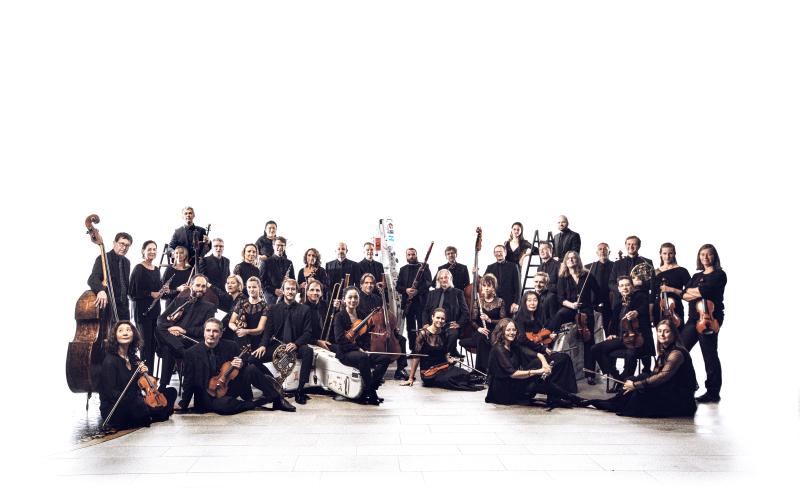
萨尔茨堡室内乐团
CAMERATA Salzburg
At home in Salzburg and around the world for over 70 years: CAMERATA has shaped the city of music with its own concert series and as a regular ensemble at the Salzburg Festival and Mozart Week. As its cultural ambassador, it is also a regular guest at major international concert venues such as the Vienna Konzerthaus, the Philharmonie de Paris, the Elbphilharmonie Hamburg, the Concertgebouw Amsterdam and the Shanghai Concert Hall. Musicians from more than 20 nations form the orchestra's sound that is particularly representative of Viennese classical music, in particular the music of its hometown's famous son, Wolfgang Amadeus Mozart. The orchestra also discovers the works of the Romantic period in the form of new chamber orchestral transparency and spans the repertoire from the Baroque to the modern era.
In 1952, the Viennese conductor and musicologist Bernhard Paumgartner, who worked in Salzburg, founded the Camerata Academica as an ensemble of teachers and students of the Mozarteum with his vision of creating an ideal sound through the personal responsibility of each individual musician in the highest sense of the community. From the very beginning, the CAMERATA under Paumgartner, known as a Mozart specialist, was primarily committed to the work of the Salzburg composer. Notable tours as well as recordings such as the complete Mozart piano concertos with Géza Anda as soloist in the 1960s and with Sir András Schiff in the 1980s anchored the orchestra on the international music market.
Sándor Végh had the greatest influence on the development of CAMERATA as chief conductor from 1978 to 1997. With him on the podium, Mozart's opera repertoire as well as works by Haydn, Beethoven and Schubert became increasingly important. His credo of approaching each piece as if it were chamber music played by a string quartet (a continuation of Paumgartner's idea) still characterizes the sound and playing style of CAMERATA today. Invitations to the Salzburg Festival as an opera orchestra allowed the orchestra to grow further. Sándor Végh was followed by Sir Roger Norrington, Leonidas Kavakos and Louis Langrée.
In 2016, the orchestra decided to take the leadership into its own hands as a logical consequence of its chamber orchestral tradition. Under the artistic direction of the "primi inter pares", CAMERATA has since performed under its own leadership and with a democratic self-image with its concertmasters Gregory Ahss and Giovanni Guzzo and, depending on the repertoire, in collaboration with guest conductors. Examples of these include Sir John Eliot Gardiner, Philippe Herreweghe, Manfred Honeck, François Leleux and Finnegan Downie-Dear. CAMERATA has an in-depth collaboration with its artistic partners, the French pianist Hélène Grimaud and the Dutch violinist Janine Jansen. In the 2024/25 season, CAMERATA will also be working with artists such as Lisa Batiashvili, Mao Fujita, Sheku Kanneh-Mason, Fazıl Say, Dorothee Oberlinger and Richard Galliano.
In addition to the Salzburg Festival and the Mozart Week, the orchestra will be represented at international festivals such as the Gstaad Menuhin Festival, the Rheingau Music Festival, the Canarias Festival and the Ruhr Piano Festival in the 2024/25 season.
CAMERATA pays particular attention to the development of young talent and carries out intensive music education work with CAMERATA Young. Inclusive projects such as "Papageno goes to school" and concerts for young and old bring the fascination of classical music to all sections of the population. CAMERATA also incorporates music education projects into its tours wherever possible.
The most recent CD recordings with artistic partner Hélène Grimaud, released by Deutsche Grammophon, are "The Messenger" (2020) with works by Mozart and Valentin Silvestrov, and live from the Elbphilharmonie the piano concerto by Robert Schumann (2022). Both recordings are united by the fact that concertmaster Giovanni Guzzo leads CAMERATA from the concertmaster's podium.
A recording of works by Robert Schumann with cellist Kian Soltani under the direction of concertmaster Gregory Ahss will be released by Deutsche Grammophon in summer 2024.
